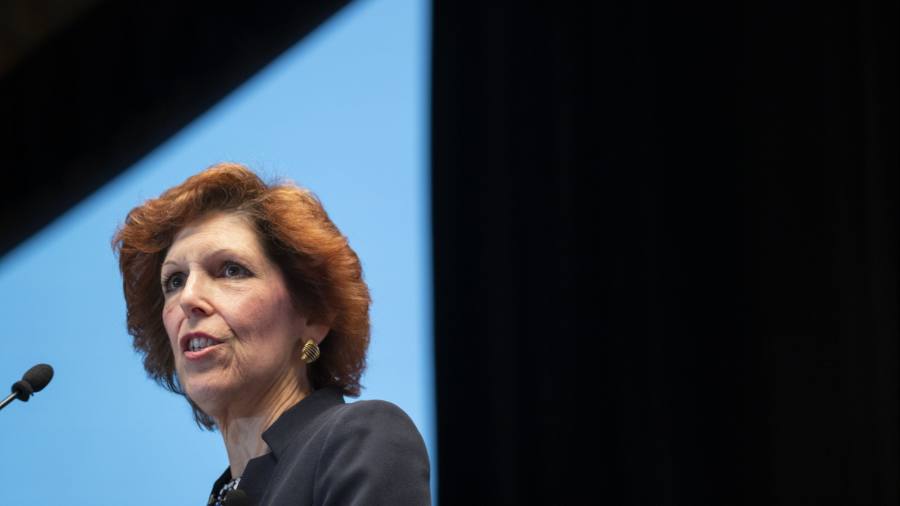
A top official at the Federal Reserve said there was no “compelling” reason to wait before implementing another interest rate rise should economic data confirm that more must be done to bring US inflation under control.
In an interview with the Financial Times, Loretta Mester, president of the Cleveland Fed, pushed back against recent suggestions from some policymakers who argued the US central bank should forego a rate rise at its next meeting in June.
“I don’t really see a compelling reason to pause — meaning wait until you get more evidence to decide what to do,” she said. “I would see more of a compelling case for bringing [rates] up . . . and then holding for a while until you get less uncertain about where the economy is going.”
The agreement this weekend between the White House and Republican congressional leaders on the US borrowing limit “relieve[s] a big piece of uncertainty about the economy”, she added. The deal must still be approved by both chambers of Congress, with the first vote expected to take place on Wednesday in the House of Representatives.
Mester’s comments come amid divisions among US policymakers over fresh rate rises, with some officials hinting at a pause in June before restarting at a later date when the economic picture becomes clearer. Meanwhile, others indicate the Fed may not need to tighten any further.
However, Mester argued the bank would always have to operate with some uncertainty over the trajectory of the economy and said she thought the Fed should only pause when the risks of doing too little were evenly balanced with doing too much.
The only reason for skipping a rate increase when it is clear more tightening is necessary would be extreme market volatility or some other shock, Mester said, such as a possible US debt default.
Mester said she could still be swayed by incoming employment data due on Friday as well as the next inflation report, which will be released just as US central bankers convene for their two-day gathering starting June 13.
However, Mester, one of the more hawkish regional presidents, signalled she was disappointed at progress on containing price pressures so far.
“I just think that we may have to go further,” she said. “At this point, I don’t really necessarily see a compelling reason that we wouldn’t want to take another small step to counter some of that really embedded, stubborn inflationary pressure.”
Her comments mark the latest intervention in the tense debate among officials over whether the Fed has squeezed the economy enough to bring inflation down. It has raised its benchmark rate by more than 5 percentage points in a little over a year.
After the series of jumbo rate rises, the fed funds rate now hovers between 5 per cent and 5.25 per cent. In March, most officials projected that level would mark the peak of the tightening campaign.
Mester, who will not become a voting member of the policy-setting Federal Open Market Committee until next year, said rate-setting decisions will become more fraught in the future.
Several voting members of the FOMC have recently expressed their scepticism over the need for an imminent pause.
However, chair Jay Powell recently hinted he supported a pause, pointing to the number of rate rises the Fed has implemented. He has also argued the recent banking turmoil will tighten financial conditions and in effect do some of the central bank’s job for it.
“We’re getting to the real hard part here of how we assess trade-offs,” Mester said. “Different policymakers will have different views about how they are assessing things.”